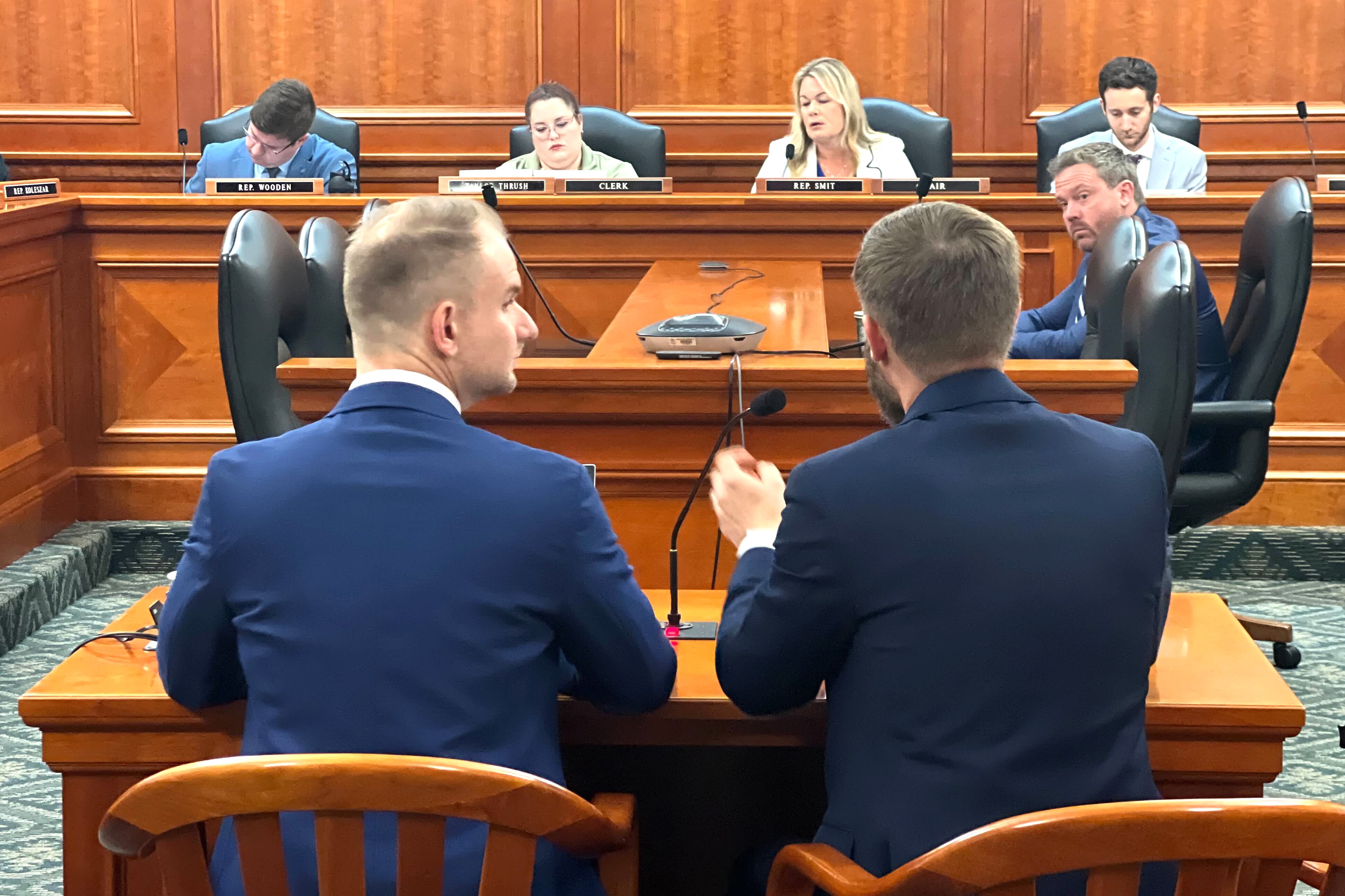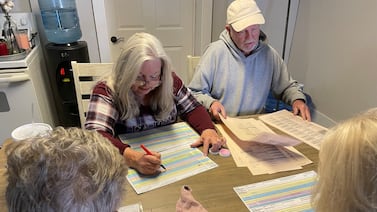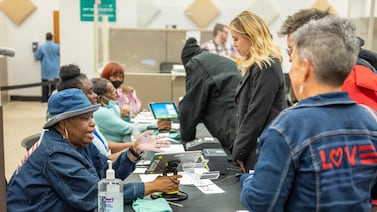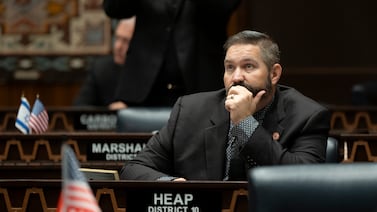Votebeat is a nonprofit news organization reporting on voting access and election administration across the U.S. Sign up for Votebeat Michigan’s free newsletter here.
Michigan could become the most populous jurisdiction in the country to adopt a complex and controversial voting method under a proposal headed to the Board of State Canvassers for review on Friday.
An initiative led by Rank MI Vote aims to get a proposal for a ranked choice voting system added to the 2026 Michigan ballot as a potential amendment to the state constitution.
For now, the state canvassers will consider only whether the description of the proposed ballot question is accurate and meets state guidelines, so organizers can begin collecting signatures on petitions.
Getting enough signatures and winning voter support for the actual proposal will be a bigger hurdle: A survey released Thursday found that 65% of Michiganders oppose ranked choice voting, with opposition coming from people in both parties.
How does ranked choice voting work?
Ranked choice voting would be a significant change from the way Michiganders vote now in races with several candidates. It works like this: Instead of voters choosing a single candidate for each office, as they do now, they would rank the candidates in order of preference. If one candidate wins an outright majority, that person is the winner. Otherwise, when ballots are tabulated, the candidate who gets the least votes is eliminated from contention, and totals are recalculated using the second choice of that candidate’s supporters. This process continues until two candidates remain, and the one who gets the highest number of votes wins.
The method is already used in Maine and Alaska, as well as in some municipal elections in New York City, Minneapolis, San Francisco, and other cities around the U.S.
Supporters argue that it produces winners with broader support.
“In a three-way gubernatorial race, for example, under the current system, three candidates could split the vote so that the winning candidate receives less than 50% of the vote, yet they’ll still be representing all Michiganders,” Pat Zabawa, executive director of Rank MI Vote, told Votebeat. He said ranked choice voting allows voters to support multiple candidates and helps ensure a majority winner, even if that person isn’t everyone’s first choice.
Opponents of ranked choice say that such a majority would be manufactured rather than a true mandate. “You’re going to see in the first round where the public actually is, and everything else is just glossing over those divisions,” said Jason Snead, executive director of the Honest Elections Project and a strong opponent of ranked choice voting.
“We’re trying to pretend that the person that wins with 60% of the vote actually has 60% support,” Snead told Votebeat shortly after testifying after the House Election Integrity Committee on Tuesday. “But when you’re pulling in second, third, fourth rankings, it’s hard to know what that actually means.”
Some Michigan municipalities are ready to adopt it
Ranked choice voting has been used in Michigan before, but only because it was required as part of a federal lawsuit. The U.S. Justice Department sued the city of Eastpointe in 2017, saying the city violated the Voting Rights Act through “racially polarized voting patterns” that allowed white voters to “dilute the black community’s voice and lead to a discriminatory result.” As part of the settlement, the city used ranked choice voting in 2019 and 2020 for local elections.
Beyond that, though, ranked choice voting isn’t allowed in Michigan under the state’s Home Rule City Act. Several municipalities have passed measures to adopt it if state law changes. Royal Oak, East Lansing, and Kalamazoo all approved it for use in 2023, for example, joining Ann Arbor and Ferndale, which did so earlier. But none of those communities can actually use it under current law.
That’s still more flexibility than many states allow. More than a dozen states have outright banned ranked choice voting in recent years, and several others rejected it through ballot measures last year. Where it is in use, election officials have had to conduct extensive campaigns explaining how to use it.
Zabawa is confident Michigan will be different. More than 1,000 people have already volunteered to help gather signatures, he said, the result of the group’s efforts to work on voting-related issues over the past several years in Michigan.
“With any electoral change, voters are interested in learning about who it advantages and how it affects them,” he said. “The reason why voters, after ranked choice voting is used, like ranked choice voting is because they learned it’s a simple, nonpartisan solution that empowers voters themselves.”
‘Ballot exhaustion’: The risk of disenfranchisement
Rank MI Vote’s proposal would have Michigan use ranked choice voting for most major elections, including federal and statewide races. The proposal would call for allowing voters to rank at least four more candidates than the number of positions to be nominated — so five rankings for an office with only a single winner.
That could lengthen already long ballots. It also allows for “ballot exhaustion,” as opponents like to point out: If a voter ranks only two candidates, and both are eliminated from contention, for example, their ballot is “exhausted,” or no longer considered in future rounds.
“One word I think of is ‘disenfranchisement’ at its finest,” Rep. Rachelle Smit, a Republican from Martin and the chair of the House Election Integrity Committee, said Tuesday after hearing from Snead and others on concerns about ranked choice voting.
The proposal also includes a few other measures in what appears to be an attempt to win over a broad coalition of voters. If approved, it would amend the state constitution to require ranked choice voting but also to require paper ballots — a popular conservative talking point, but also something Michigan already does — and to require primaries to be at least 140 days before a general election. That would all but eliminate Michigan’s relatively small (and potentially expensive) August elections, and push them to no later than mid-June, likely combining it with the May local elections.
The proposal is set to appear before the Board of State Canvassers on Friday to finalize the petition language, and organizers could begin collecting signatures on petitions as soon as this week.
Updated, June 30: This story was updated to include a link to survey results on views of ranked choice voting.
Hayley Harding is a reporter for Votebeat based in Michigan. Contact Hayley at hharding@votebeat.org.






